This village is close to Yiwu, and so we should expect decidedly orthodox Yiwu behaviour. The lovely old 2009 wrapper is shown above, while the more spartan, "classical" 2010 wrapper is shown below. The remainder of the photographs in this article are from the later version of the cake, which was seemingly bought from the same farmers as the 2009 version - both are similar.
Both 2009 and 2010 cakes are comprised of leaves that I couldn't really tell apart: they are long, as shown below, and have a sharp sweetness that belies their autumnal picking.
The 2009 seemed a little watery, in both character and colour, and requires more leaves than the 2010 in order to provide a solid brew. This is something of a surprise, because one might expect it to be the other way around, given the drought that ravaged the pu'ercha crop of 2010.
The 2009 has that charming straw-like character that I sometimes think of as a sub-type of the general Yiwu sweetness. It is a class of character that reminds me of the celebrated 2006 Xingshunxiang cake (celebrated by me, that is). If pressed, I would try to describe this straw-like nature as being a pleasant, vegetal sourness, which I rather like. It isn't the tangy, "off-brown" sourness of rough tea.
The 2010 shares that straw-like character, but it is more of a background note - perhaps this is the effect of the drought, if any effect there were.
However, this pair of Dingjiazhai aren't up to my old (and decidedly inexpensive) Xingshunxiang friend in terms of overall appeal.
Later infusions bring out a definite sweetness in both cakes, though the 2009 never quite shakes that empty, "loose", watery feeling. Both cakes are lightly cooling in the mouth, perhaps testifying to the quality of leaves that Scott has selected.
These are decent cakes. The 2009 edges towards an abrasive roughness in the mouth, which the 2010 avoids, but they are otherwise fairly similar. Their potency is very decent, and it is entirely possible that this could cause them to improve with age.
That said, given the choice between these cakes and, let's say, the Yiwu "Wangongzhai", there isn't much of a comparison in terms of quality. The latter is excellent; these Dingjiazhai cakes are merely "good". Ordinarily, that could be enough for a tea merchant to be pleased - here, Scott has spoiled us with better cakes costing around the same amount, and so I feel that there is little reason to explore these past a sample to broaden the palate.
The remainders of my samples go into my next correspondent's "sample package"...

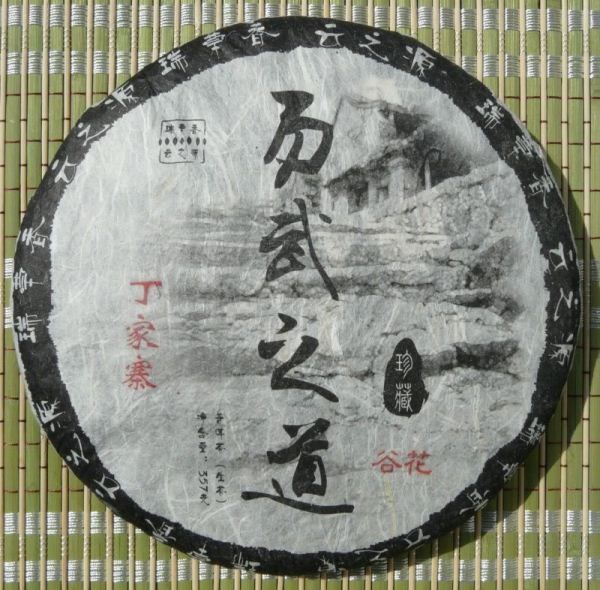
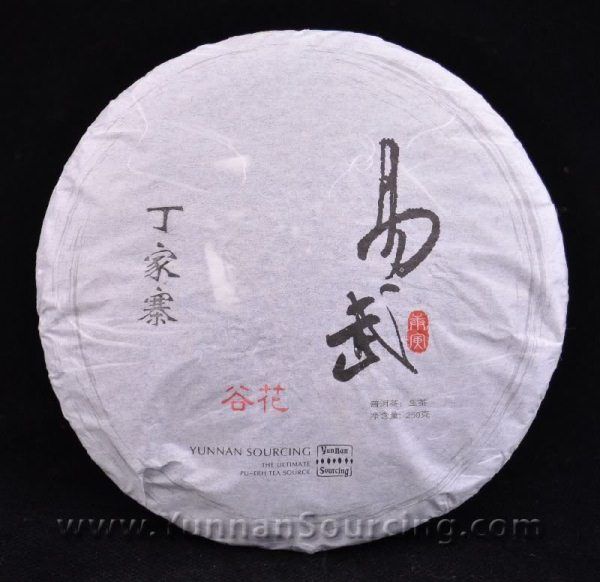
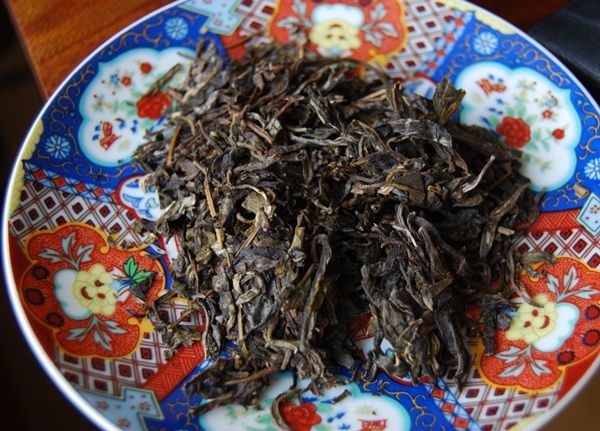
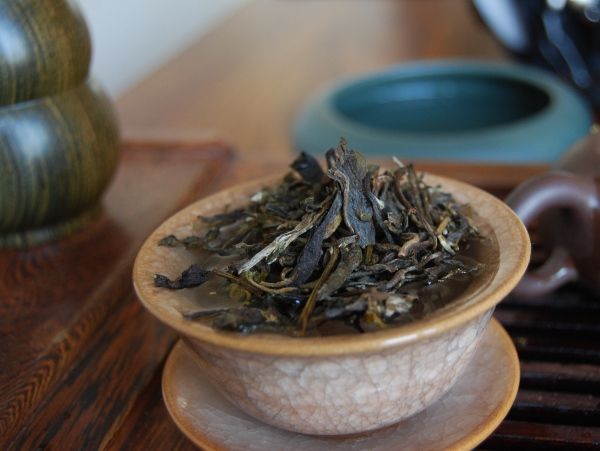
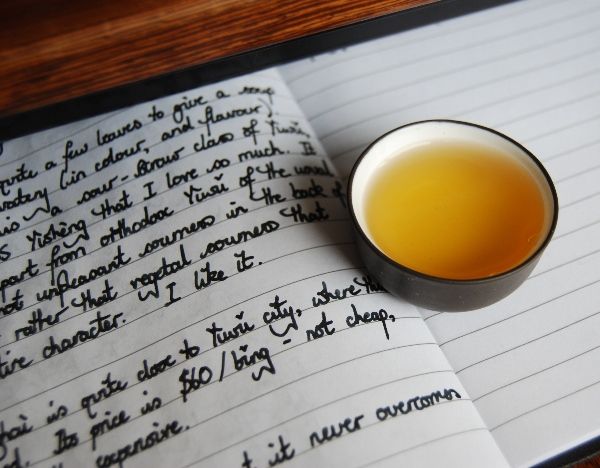
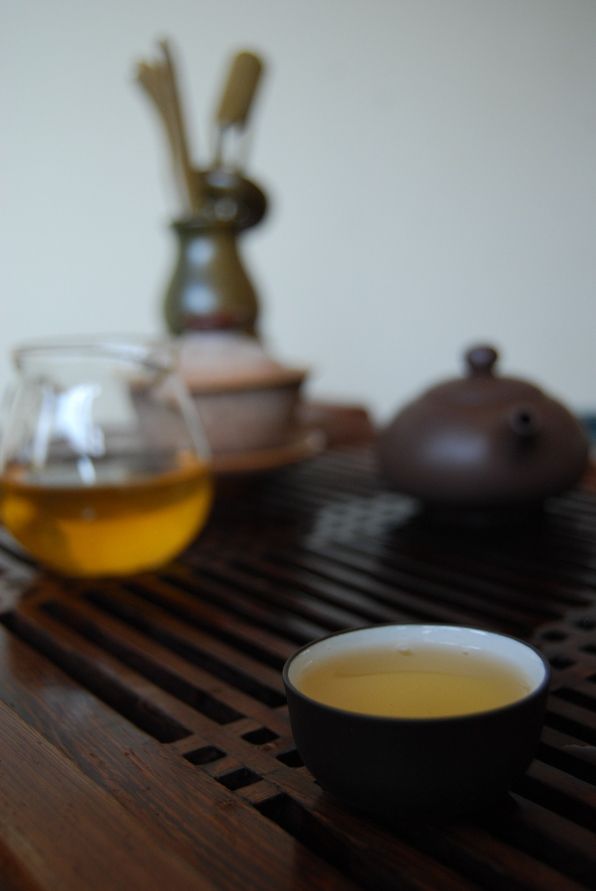
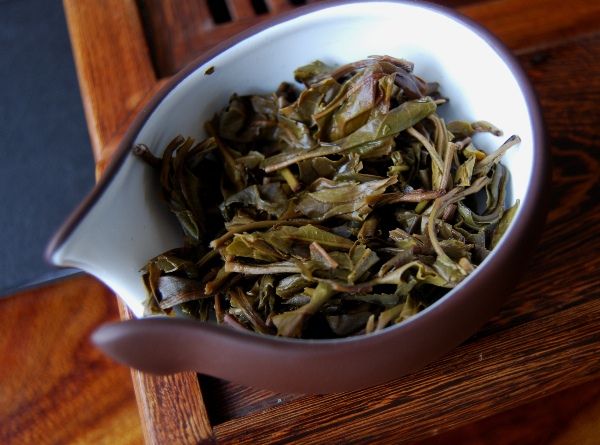
2 comments:
I recently stumbled upon your blog, and I love it. I have some questions for you, and was wondering how best to contact you.
Thanks.
Dear Taylor,
Thanks for reading; my e-mail address is hobbesoxon at gmail.com, to answer your question.
All the best,
Hobbes
Post a Comment